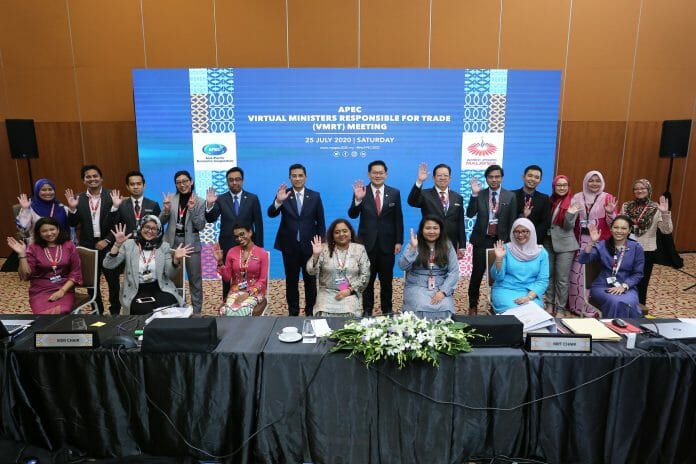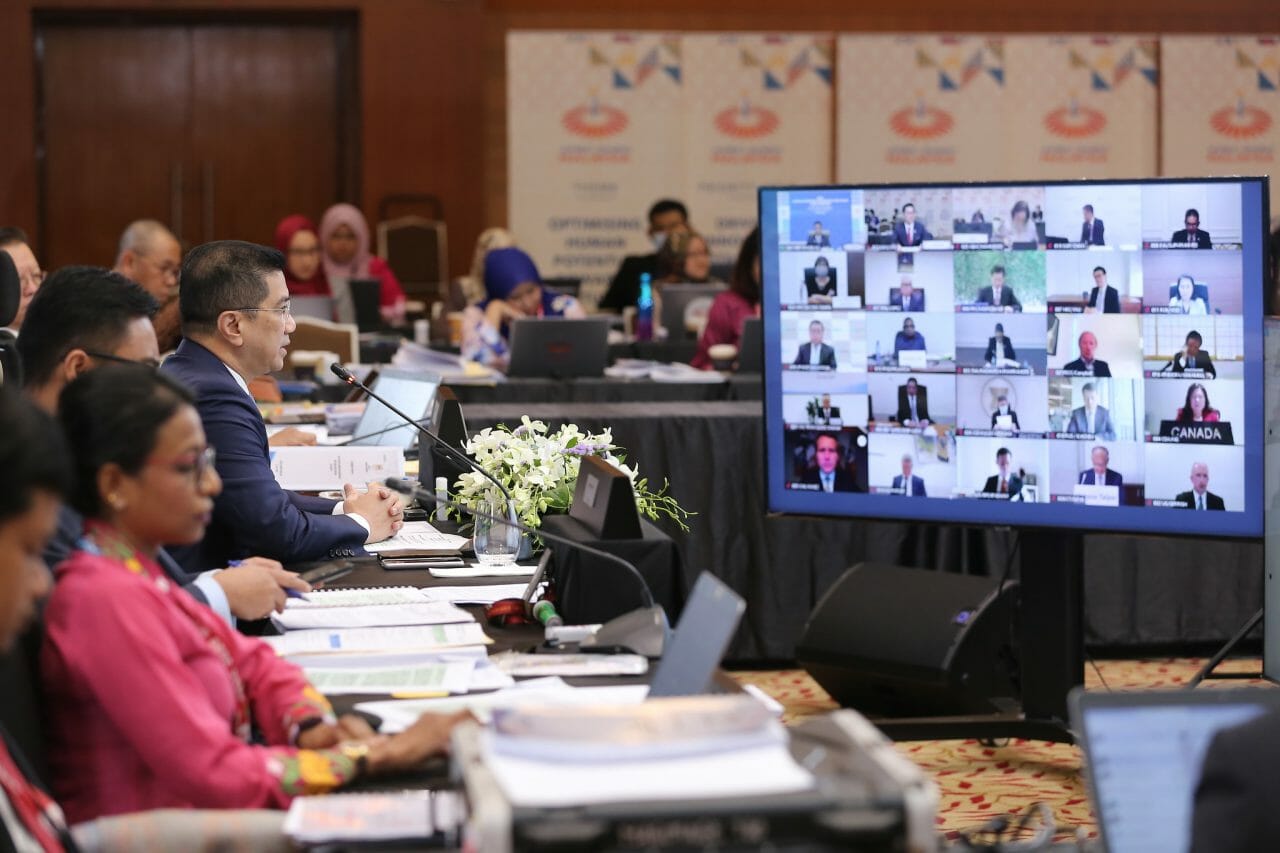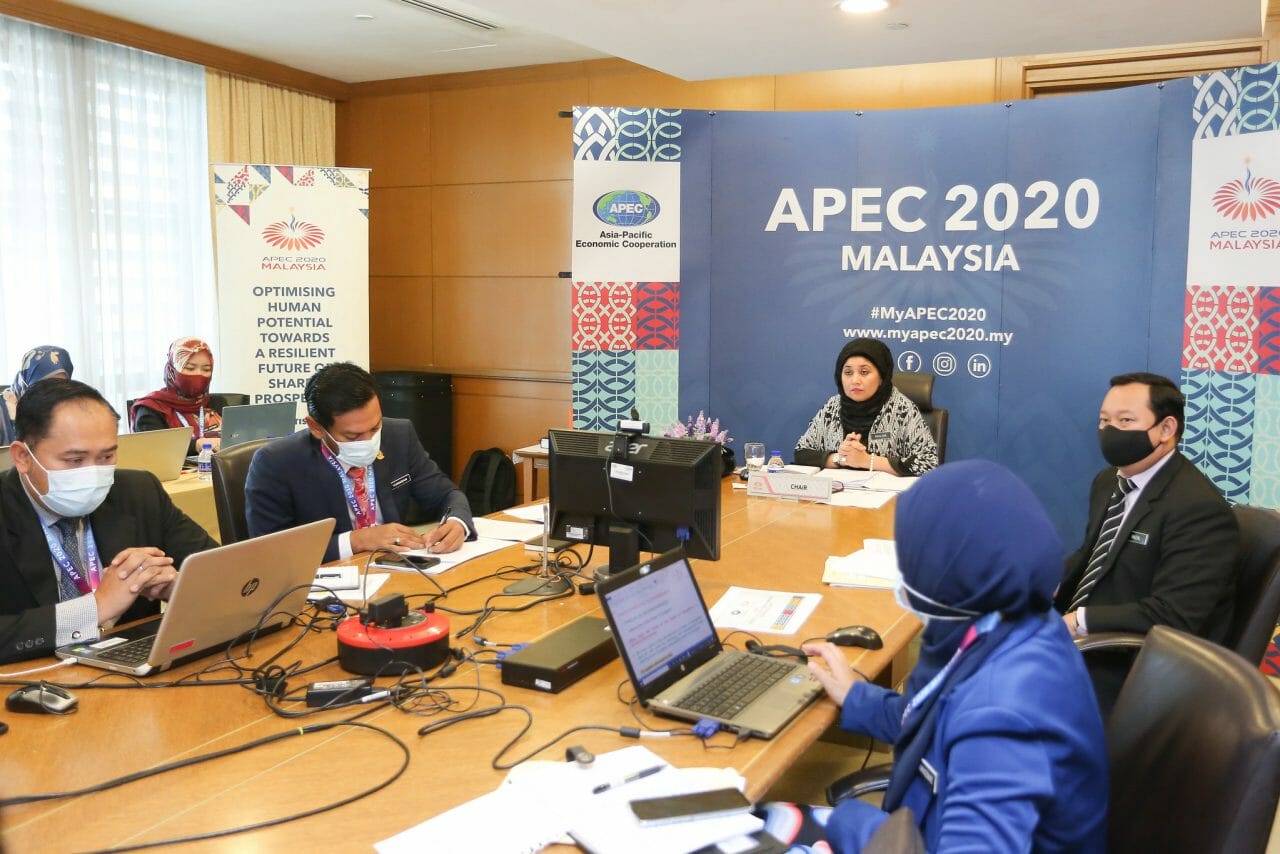Over 20,000 working hours throughout the year involving delegates from 21 Asia Pacific economies.
And the year-long feat is far from over.
Malaysia placed itself on the world map by pulling off a spectacular feat – by hosting the Asian Pacific Economic Conference (APEC) 2020 virtually for the first time in the summit’s history.
Malaysia has thus set the benchmark as New Zealand revealed plans to host next year’s summit in similar fashion.
How did Malaysia do it with the backdrop of the ongoing battle against the Covid-19 pandemic?
It was with a whole lot of teamwork – including some 35 Ministry of International Trade and Industry (MITI) staff members who are part of the APEC 2020 National Secretariat, representatives from various ministries and government agencies and 1,422 volunteers.
MITI – the APEC 2020 National Secretariat – had been keeping close tabs on Covid-19 since January.
The ministry even went on to prepare videos on social distancing and washing hands regularly as delegates visited the country. The video was even played in a Feb 2 meeting.
The level of preparedness was evident even when the nation’s borders were still open.
Foreign delegates were given health declaration forms upon arrival. MITI kept one copy while the delegates kept the other copy which had information, including the nearest hospital if they showed Covid-19 symptoms.
Hotels were told to scan and record the temperatures of those entering their premises as face masks were handed out while sanitisation stations were placed around the meeting venue. Delegates were also given hand santisers.
Even in February, some of the delegates were not able to attend the meetings as the concerned economies tightened their borders. They instead joined virtually, marking the beginning of APEC 2020’s digital experience.
In the middle of April, discussions were held regarding APEC 2020 and the first proper virtual meeting was with Tan Sri Rebecca Fatima Sta Maria, the executive director of the APEC Secretariat based in Singapore.
Sta Maria suggested that the host write to all the economies about the decision to have the Virtual Extraordinary Senior Officials meeting on May 27.
The meeting was to discuss how economies can help transfer goods and the movement of essential goods like wheat and raw sugar.
MITI had then proposed that APEC 2020 be held virtually and this received the thumbs up by the Malaysian government.
Telecommunications company Celcom Axiata Berhad is the connectivity partner for APEC 2020 and has been playing a huge role in ensuring the digital meetings go on smoothly.
Zuhaila Akmar Mohd Sedek, MITI’s Head of Communications Strategic Unit, described the experience as “very challenging but rewarding”.
“Despite the situation, it provided us an opportunity to showcase our true capabilities. There were some ups and downs, but we picked ourselves up pretty well and established the idea that safeguarding the economy must be of top priority, apart from ensuring the well-being of the people,” said Zuhaila.
“This to me is an experience money cannot buy”.
Zuhaila said the pandemic has changed the way APEC is being organised entirely.
“We had to look into many possible scenarios but the MITI team was always ready for any challenge. To manage the various levels of communication, it is important to have the bigger picture in mind and to segmentise the work accordingly.
“As someone who is used to managing international events, I have some point of reference, thankfully. The past experiences helped guide me in managing the team.”
Zuhaila added that it was important to always be agile and to never give up.
“Organising APEC reminds me to always turn challenges into opportunities,” she added.
Many aspects had to be considered in going virtual, said Shukri Firos Rahman, the Logistics Head of the APEC 2020 National Secretariat.
“As the summit involved delegates from various economies worldwide over eight different time zones, timing was important,” he said.
“Based on research with economies, we came up with two timings – 10am to 1pm and 8pm to 11pm. This was to cater for the various time zones.”
Datin Mega Marissa Abdul Malek, MITI’s Senior Principal Assistant Director (Strategic Trade Secretariat), said it boiled down to every single detail in ensuring the meetings were a success.
“Our team is no stranger to organising events but when it comes to a virtual summit this big, it’s all about planning and it covers every aspect,” said Marissa.
“We even prepared storyboards right down to the seconds to ensure the speakers have the opportunity to speak.”
The other hurdle was securing the number of participants for meetings.
As Marissa pointed out: “When it comes to a physical meeting, tickets have been booked, accommodation made and you know for a fact those invited will turn up. But online, people can decide at the very last minute if they want to show up or not.
“So we can’t be certain about the turnout. There’s also the Internet connectivity and lighting that need to be taken into account.”
As New Zealand will also host the regional economic summit virtually next year, Zuhaila said: “I know New Zealand will do well next year. If there’s anything I can contribute, it is that to never be afraid of making mistakes because you can only know what’s best when you make mistakes.”
She added: “Be patient and be kind – these are commodities to ensure your well-being while managing the event, apart from having the knowledge of course.”
Malaysia, a founding member of APEC which was established in 1989, is hosting the regional forum for the second time after hosting it in 1998.
This year’s theme is “Optimising Human Potential Towards a Resilient Future of Shared Prosperity: Pivot. Prioritise. Progress”.











